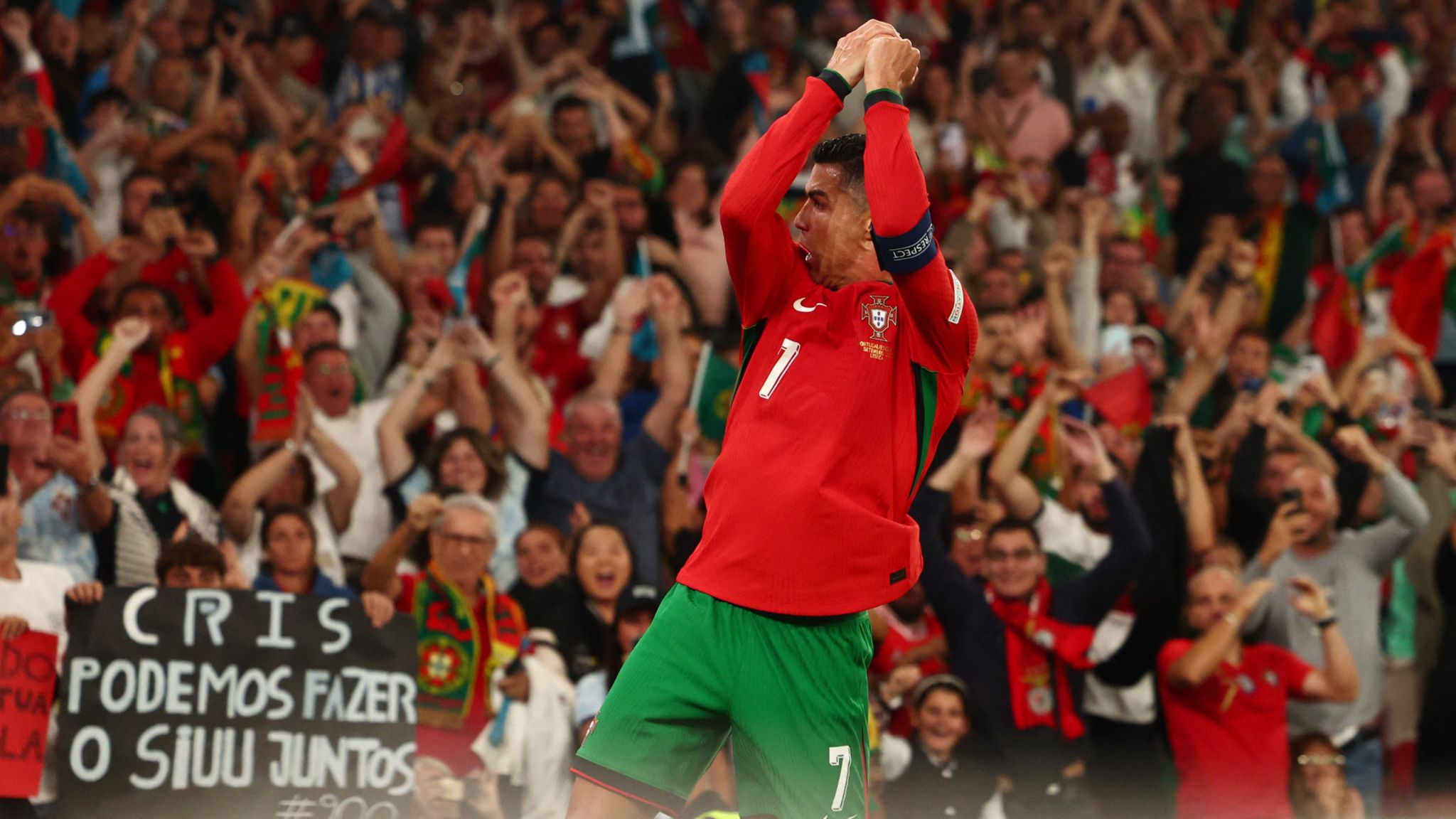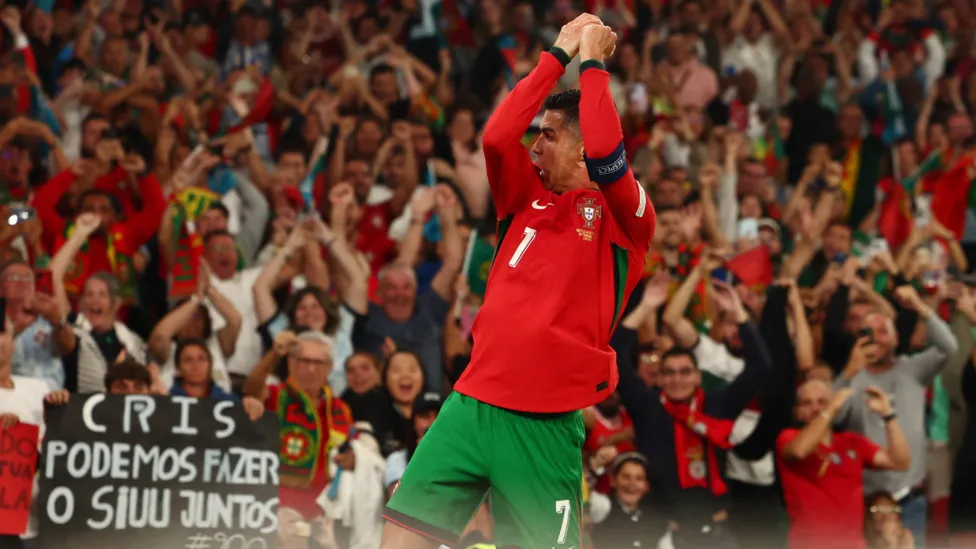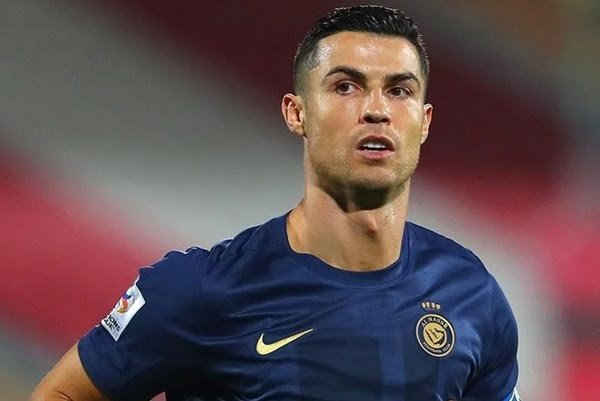After Cristiano Ronaldo elegantly slotted home his 901st career goal to defeat Scotland, he raced to the corner flag to celebrate with the same enthusiasm as if it were his first-ever goal.
But he didn’t stop there; he continued to make a show of it, striding down the touchline, gesturing and shouting as if his goal had secured more than just three Nations League points.
At 39, having transitioned from club football to the Saudi Pro League, Ronaldo’s joy at scoring another significant goal for his national team in a vibrant Estadio da Luz suggests he’s fully aware of his changing career phase.
Yet, his relentless drive, hunger for goals, and exceptional finishing skills keep him in the spotlight. After being introduced at halftime by Roberto Martinez with Scotland leading 1-0, the game quickly became a display of Ronaldo’s prowess.

Before scoring the winner, he hit both posts, expressed frustration towards the referee and teammates, and even had an encounter with a pitch invader.
Scoring 901 professional goals is an extraordinary achievement, but given his fierce ambition, it’s hard to doubt he could reach 1,000. Ronaldo decides his own timeline, regardless of external opinions.
Scotland’s Struggles and Clarke’s Approach
Scotland, now the 48th international team to fall to Ronaldo, faced familiar challenges. Recent games, including the loss to Poland, have exposed major issues, with a total of 33 goals conceded in their last 14 matches.
Scotland has allowed goals after the 85th minute in five of their last six games, resulting in just one win in 14 matches and none in competitive fixtures over the past year.
Head coach Steve Clarke acknowledged the need for understanding their current phase and the ongoing efforts to build a stronger team. “We have to recognize what part of the cycle we’re in and what we’re trying to build,” he said.
Clarke is aiming to adjust tactics following a disappointing Euro 2024 campaign. The shift from a back five to a 4-2-3-1 formation has shown some attacking promise, and recent changes, including the introduction of players like Ryan Gauld, Ben Doak, and Tommy Conway, suggest a new approach for World Cup qualifiers.
Clarke describes the approach as evolution rather than revolution, and with limited time and strong opposition ahead, there’s much work to be done.
McTominay’s Impact
Amidst the team’s challenges, Scott McTominay remains central to Clarke’s plans, continuing his impressive goal-scoring run in Lisbon. He scored Scotland’s opening goal, marking his 10th goal in his last 12 international appearances.
McTominay’s recent move from Manchester United to Napoli generated significant discussion, with Erik ten Hag expressing his reluctance to see him leave. Despite mixed results in various midfield roles at United, McTominay has thrived in an advanced midfield position for Scotland.
Previously playing as a right-sided center-back, he scored just one goal in his first 37 caps but has since netted 10 in his last 17 matches. McTominay is now Scotland’s key player, and his transition to Napoli has further boosted his form.
“He seems to thrive in a Scotland jersey,” said former striker James McFadden. “His athleticism, energy, and intelligent positioning make him a standout performer, and his finishing is exceptional.”








